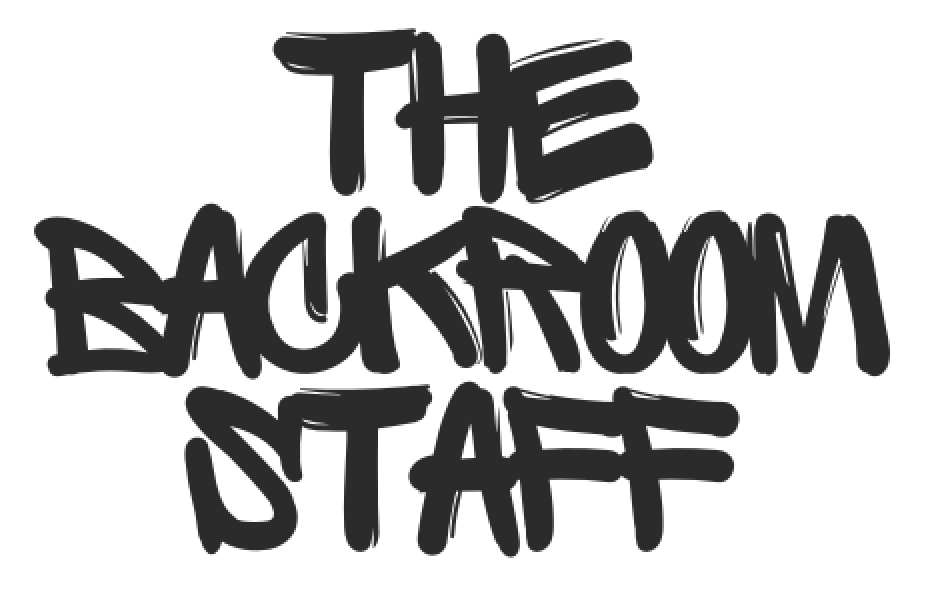Luís Figueiredo is a true practitioner - working across almost every age group and level as a coach, scout, coach educator and technical director from small regional clubs to European giants Lazio and Benfica.
His spirit of adventure and openness has led him from his native Portugal around the world, from Italy to Finland to India - each role shaping his ideas about football and making him a more complete coach.
In this interview, Luís reflects on his journey - from early inspiration from José Mourinho to leading Kajaanin Haka to promotion in Finland and helping establish Sreenidi Deccan’s academy in India - and shares his philosophy on creating, giving and seizing opportunities in football.
The interview has been condensed and lightly edited for grammar and clarity.
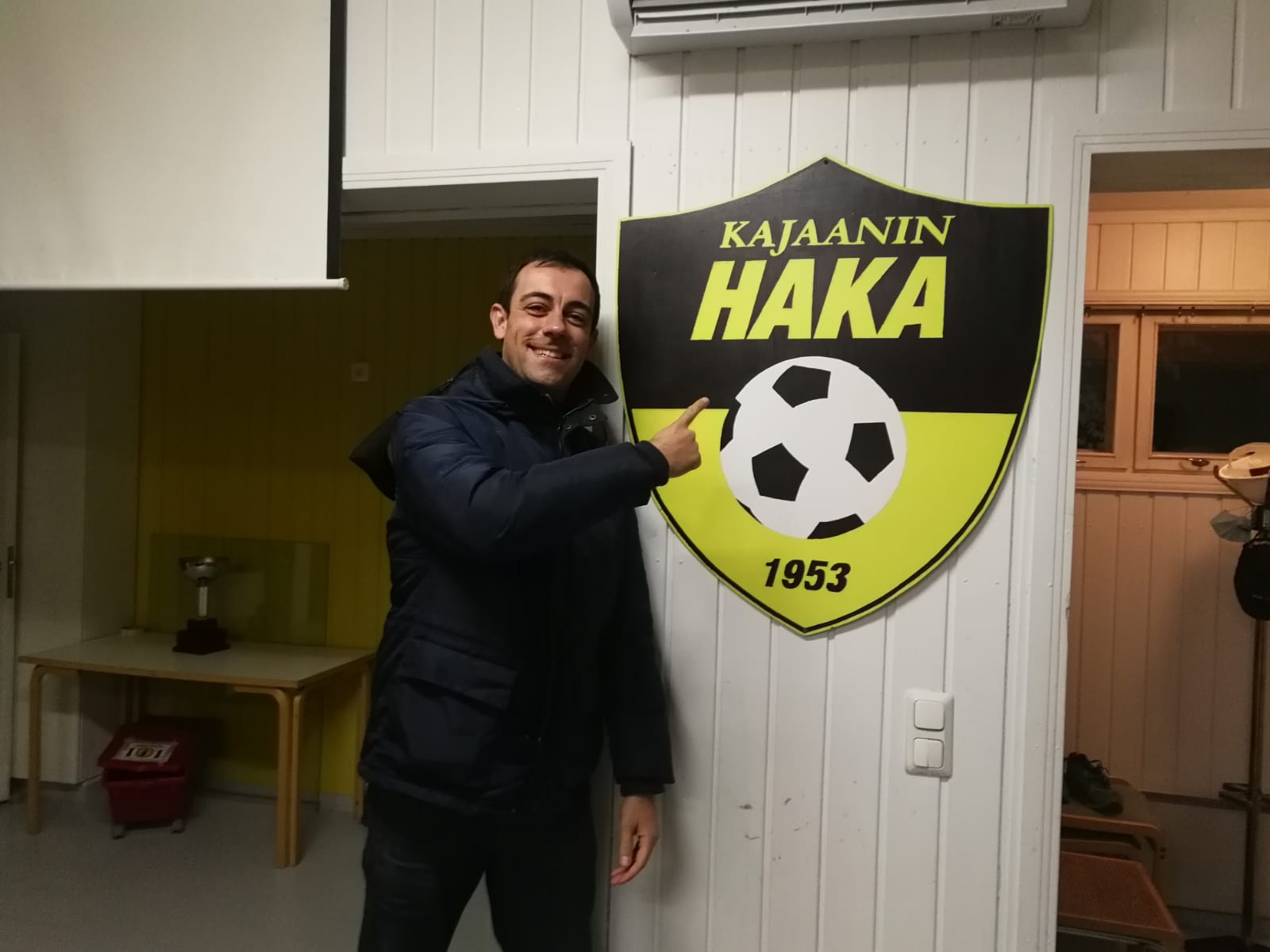
[ Background ]
When I was a young guy, I played football in the club in my town. I was a goalkeeper. But, I soon understood that I didn’t have the quality to reach a higher level. Even then, I always liked to understand what the coach was doing with the team - sometimes I didn’t agree with their decisions!
When the time to choose a university arrived, I did something that was not common at the time - I think today it’s still not common - I imagined myself 10 years later, at 28 years old. I imagined doing different jobs - a doctor or a nurse or all kinds of different jobs - and I thought about how I’d feel. Not good! I could only imagine being a coach.
I had a big influence, José Mourinho. At that time, 2003, 2004 was the time of José Mourinho. He went to Porto and won the UEFA Cup and the Champions League - he was not the first in Portugal to have a lot of success but he was unique because he wasn’t a football player - he was coming from university.
When I saw Mourinho and imagined myself as a coach, I thought, this guy, who was not a footballer, can do it, probably I can do the same.
I chose UTAD in Vila Real, that gave me the opportunity to be a sports teacher and a head coach. I wanted to understand everything related to football - I studied psychology, anatomy, biomechanics, didactics, pedagogy and tried to take every detail into my coaching. When I finished 5 years later, I was a UEFA C coach and started my journey as a coach.
[ Finding opportunities as a young coach ]
My first step into coaching was during my first year at university. I started with an under 10 team, they were the ‘C’ team at a local club, players who didn’t have the quality to play higher. I stayed with them during my second year, just gaining experience.
Then in the third year of university, I did Erasmus in Roma. In Roma, my colleague and I had an opportunity to do an internship at Lazio. I joined the under 14 team and my friend joined the under 12 team. We observed everything we could, all the time looking and taking notes. I worked with the goalkeeper coach and I can tell you the things I learned there, the way we observe helped me be the coach I am today.
Because goalkeeper training is very detailed, from the position of the body, the technique, you need to see everything with very detailed eyes. This completes me as a coach because now, for example, I see my team play and I can see the body language of each player, I can see if they are receiving the ball or dribbling in a good orientation, everything from technique and how they run, all these details I take from the goalkeeper trainings at that time.
When I came back to Portugal, I stayed with the same team, but now they are under 12. When I finished my degree at 23 years old, the big challenge started. When I arrived to give my CV, everyone told me I’m too young to be a head coach and I didn’t have experience. I knew I didn’t have a lot of experience but if I don’t have a chance, I’ll never get the experience!
It was a difficult time but I needed to continue and do different things. The goalkeeper at Lazio - he was also coaching with the Italian national team - he had a goalkeeper school in Italy and he had told me, ‘Luís, why don’t you open a goalkeeper school in Portugal?’ At the time, I didn’t want to do this. I like goalkeeper coaching - because I was a goalkeeper but it’s not what I want to do. But when I finished university, I didn’t have any opportunities so I contacted the goalkeeper coach and I went to Italy every year for 3-4 years to give camps for goalkeepers in Italy and then do some things in Portugal. This was my first opportunity in professional football - as a goalkeeper assistant coach but it helped me gain one new experience and find new opportunities.
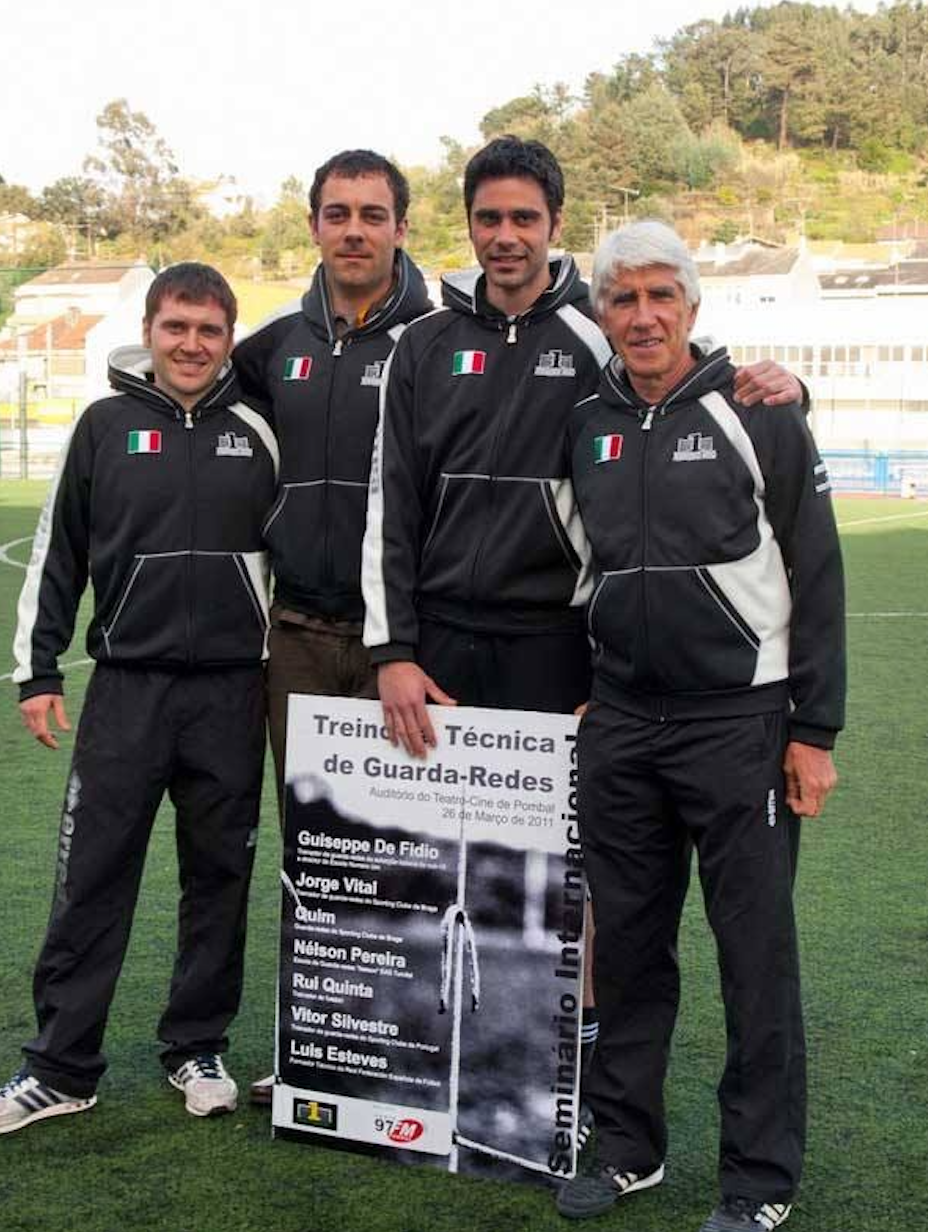
[ You’ve switched between a lot of different roles and levels from youth coaching, head coach, scout, technical director, etc, how has this benefited your career? ]
This is advice that I give to everyone. I'm a coach educator here in Portugal, and many times when I speak to my students or young coaches. All the time, I tell them, it's very important to get experience at some level because you need to have something to compare.
For example, I started at under 10 and it was very important for me. Why? At that time, my team, the players were not so good. I lost 15-0, 10-0, 12-0, 20-0. I had kids leaving the game crying - it’s normal, the kid doesn’t want to go to the next training because he lost or everyone is saying he’s a loser or didn’t play well. My goal - or my preoccupation - was, I didn’t want to lose any player that season. We can lose all the games but the players need to understand and have fun in training and keep learning.
This experience helped me as a coach and in management to better understand the game, the kids, the players and the parents.
When I was technical director at Benfica. I didn’t want teams winning 15-0, this is not good for the players. I always balance the teams, I don’t just put all the good players on one side, I mix the teams because that way, they can develop and grow.
This also helped me become a better coach because now, when I’m a head coach in the first team, I have maybe 26-28 players, every player thinks differently but, in the end, only 11 can play. How can I put it in everyone’s mind that everybody is important, if you play 5 minutes, 19 minutes or if you don’t play, you are equally important as the guy that scored the final goal because if you are not there, I can’t even run training.
This is why in my young ages, 25, 26, 27, 28, 30, 31, 32, I knew that nobody would give me the opportunity to be head coach, so I tried to get experience in different roles to ‘complete’ me and make me a better coach. Now, I’m almost 40 and I’m prepared to be at the top level.
"I knew that nobody would give me the opportunity to be head coach, so I tried to get experience in different roles to ‘complete’ me and make me a better coach"
[ What are the biggest differences and challenges of switching between semi-professional and professional setups? ]
I think that it's very important to understand that the principal thing is how will you adapt? I need to understand and respect the context when I go abroad, for example. I cannot go to Finland and do only the same things I’m doing in Portugal. I need to understand and adjust and adapt to where I am and the level I’m at.
It doesn’t matter if it’s the top level or the regional level, you need to be professional and put effort into your work. If you do this in a regional club, in a small club, when you arrive at the top level, it’s easy for you because at the top level you have everything.
So, if you work seriously and do things correctly in the regional divisions when you don’t have anything. When you have only 20 balls for the whole season and finish the season with 10 - and you need to adapt all the time, think how you can improve when you arrive at the top level and have everything!
In my last club here in Portugal in the regional leagues, we were 3 people - myself, an assistant for physical work and a goalkeeper coach - and we did all the work like we were in a professional league. I built a scouting department with 4 guys working, two in Brazil and two in Portugal, analyzing and scouting our opponents, our own team, everything. We made partnerships with different universities, schools and clubs. So, we are in the regional leagues but we work like we’re professionals.
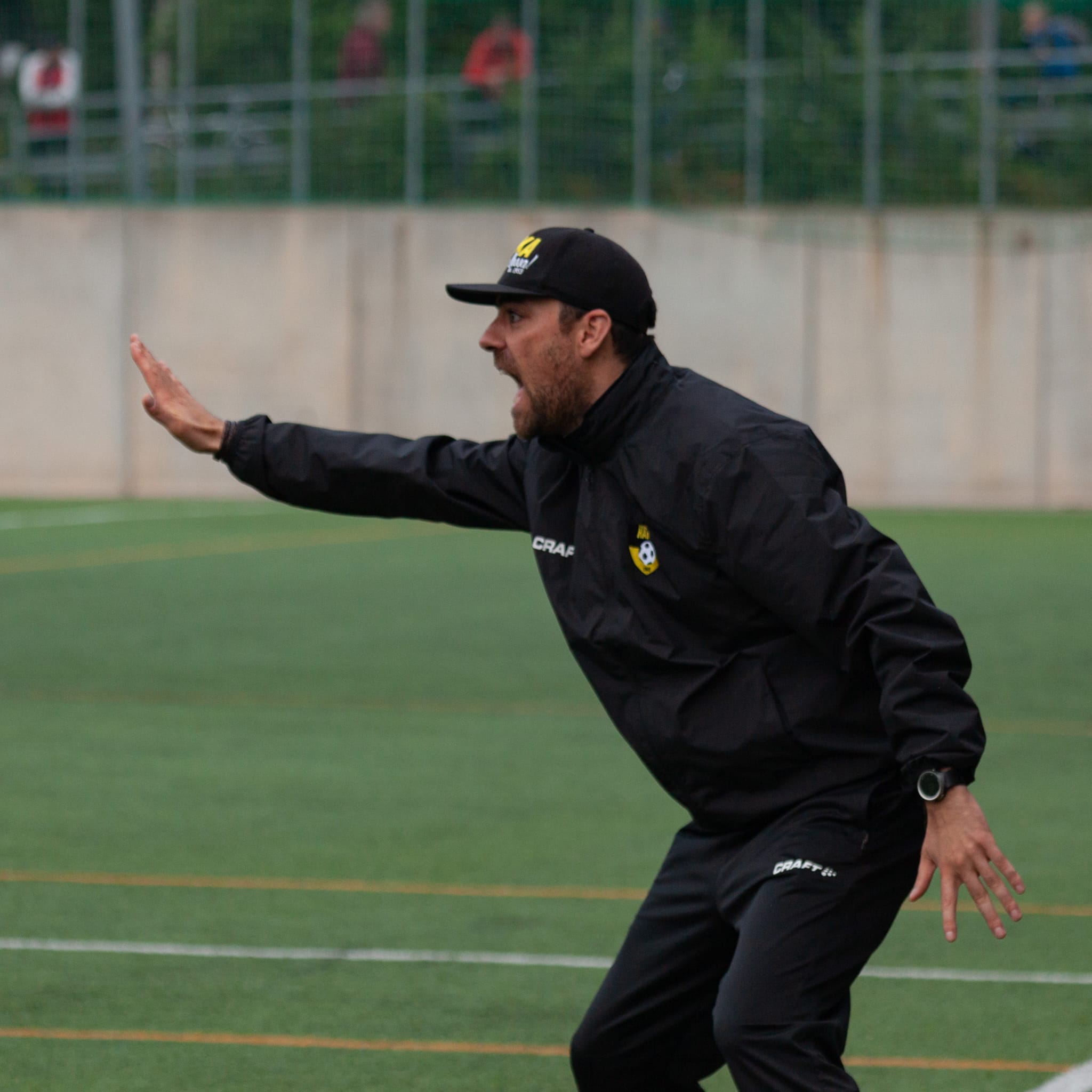
[ You’ve set up very impressive scouting and analysis networks at many of your clubs. Why do you place such an emphasis on this? ]
I was a guy who suffered when I was young because I didn’t have experience. I know that there are more people like me who are looking for some experience but nobody gives it to them.
I think that this is very important in all clubs because if you have people to help you, you will be a better coach, you’ll do better work and your team will develop.
If you don’t have experience but you want to do scouting, I say, come work with me, I’ll give you a foundation, I’ll give you experience and then you can have this experience and further your career. For example, in Finland, we built a scouting department across 15 countries - 48 scouts working with me in 15 countries. 5 or 6 of those guys are working full-time in football now, scouting for professional teams. They started with me, I gave them experience, explained how they can do things, gave some courses and invited people to speak - this is how I think clubs need to work, give experience to the people that want to work.
In Finland, in the middle of the season, we needed a certain type of player and from this scouting system, we found a talented player in the U23 team at a first division club who wasn’t happy with his situation. We brought him to Finland, in 3 months he scored 15 goals and assisted 14 and we sold him to a first division club.
Of course, it’s a lot of work and you need to have creativity, but this is how clubs need to work.
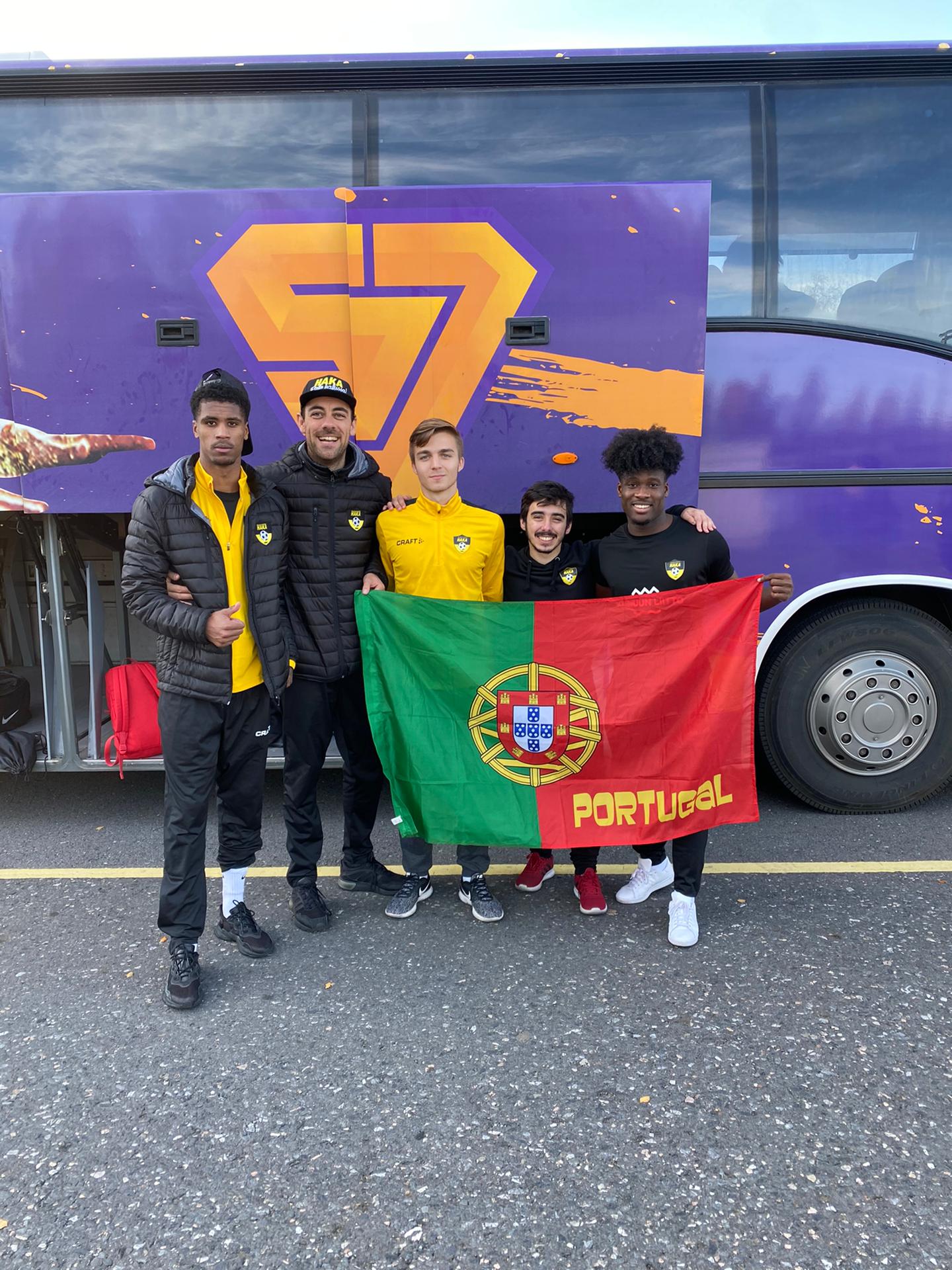
"this is how I think clubs need to work, give experience to the people that want to work"
[ 48 scouts in the 4th division is crazy! ]
At that time, HJK - the best team in Finland - they only had 2 scouts! Their sporting director contacted me to support them with finding some players and we did some things with them.
When I arrive at a club, my mindset is that when I leave, the club needs to be better than when I arrived. I want that the club doesn’t think small, they can think bigger. This club in Finland, when I arrived, we were in the 4th division, we became champions and were promoted to the 3rd division. The club ‘arrived’ in 15 countries - people from all parts of the world knew about us, this is how the club can grow. It was an amazing experience, we were champions, we valorized young players and gave chances to lots of young kids 17, 18 years old and we sold players to higher levels.
[ Given your background across all kinds of coaching, what do you think about the hyper-specialization trend in coaching? ]
I think the way that we're going is definitely towards specialization. For example, I can give my experience in small clubs, I don’t have a big technical team so I need to keep my eyes on everything and it’s very, very difficult. You can’t do everything, see everything and pay attention to every detail. It’s normal - and we can look at other sports for examples - specialization will be the future.
There will be more coaches for set pieces, defensive organization, offensive organization. The ideas need to still come from the head coach, of course, but the head coach will be more of a manager. The assistant coaches will give information to the coach and the coach will decide what to do - it needs to be this way because the head coach can’t see everything.
But the important thing is, you have to have the right people with you, people that look at the game like you do, people you trust. Often, what happens if the assistant coach sees things differently from the head coach, it will be difficult to work because they won’t agree on the feedback. So, the people that work with you are very important and if you have the right people, the head coach can be very, very strong.
[ After Finland, you went to India, what were you doing there? ]
Before Finland, I worked at Benfica, and when I came back from Finland, Benfica approached me again. They have an international project, a partnership with the national team of Mauritius to have someone there, share our methodology and work with them.
At the time, some problems happened with the Federation and FIFA and anyway, I couldn’t go in the end. So, they (Benfica) had another partnership with an Indian club and asked if I’d go there to help set up our training and youth methodology at the club.
I said okay! India was an amazing experience, I loved it. The people - I’ve been back in Portugal for about a year and a half and I think every day I still speak with someone from India! My work was ‘year zero’, it’s very difficult to change mentalities but the Indian coaches want to learn, everything I said, they took with them and put on the field. It was very exciting. We created a big thing there, we organized the club, they have very good conditions and have already developed very good players and put some players in the youth national teams.
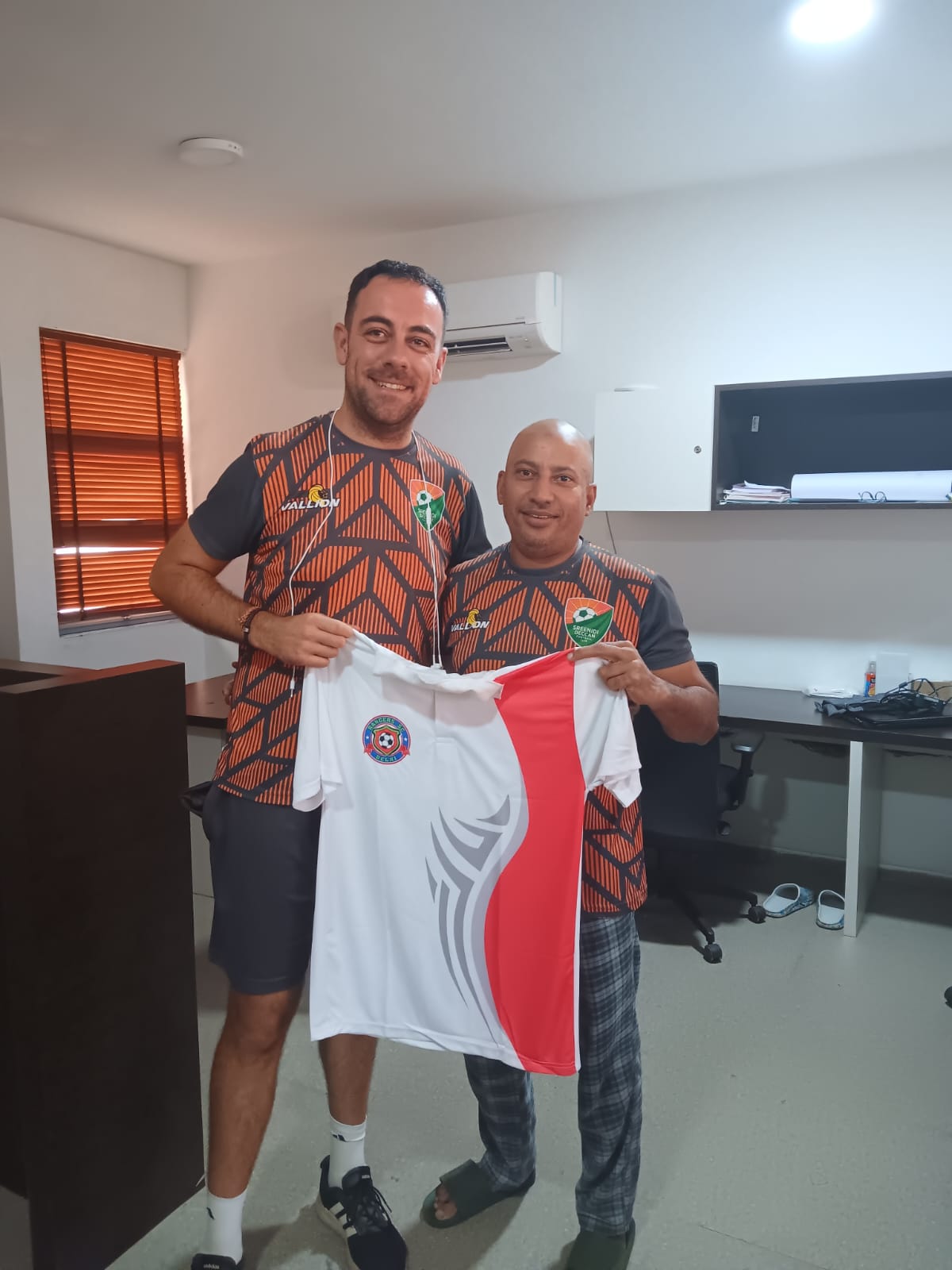
[ You’re one of the coach educators in Portugal for the UEFA C courses but you did your own licenses with the Scottish FA - why is it so common for coaches to do their licenses abroad? ]
Here in Portugal, it took me 10 years to get the UEFA A Licence. I lost a lot of opportunities because I didn’t have my license. In Portugal, we have a lot of people who want to be coaches and the selection process - in my opinion - I don’t agree with them. For example, if you are a guy, 22 years old, just finished university and you have a friend who is a head coach in the first league and you go to work for him as an assistant - you only put cones down but you are an assistant coach in the first league on paper. I’m a coach with 20 years of experience across all levels but I didn’t have that opportunity, I didn’t know anyone and they go with the guy who’s 22.
In Scotland, they analyze the CV for each coach much better. When I did my courses there, we had people from all over the world - Scottish guys, of course, but also American, Russian, Egyptian, Serbian, African - from so many different parts of the world.
It was very nice, very difficult and a challenge because the way they look at football is totally different, but it was very good for me and gave me new perspectives. I recommend the Scottish FA, it’s an amazing experience, they are good coach educators and you learn a lot. I want to take the UEFA Pro course in Scotland as well.
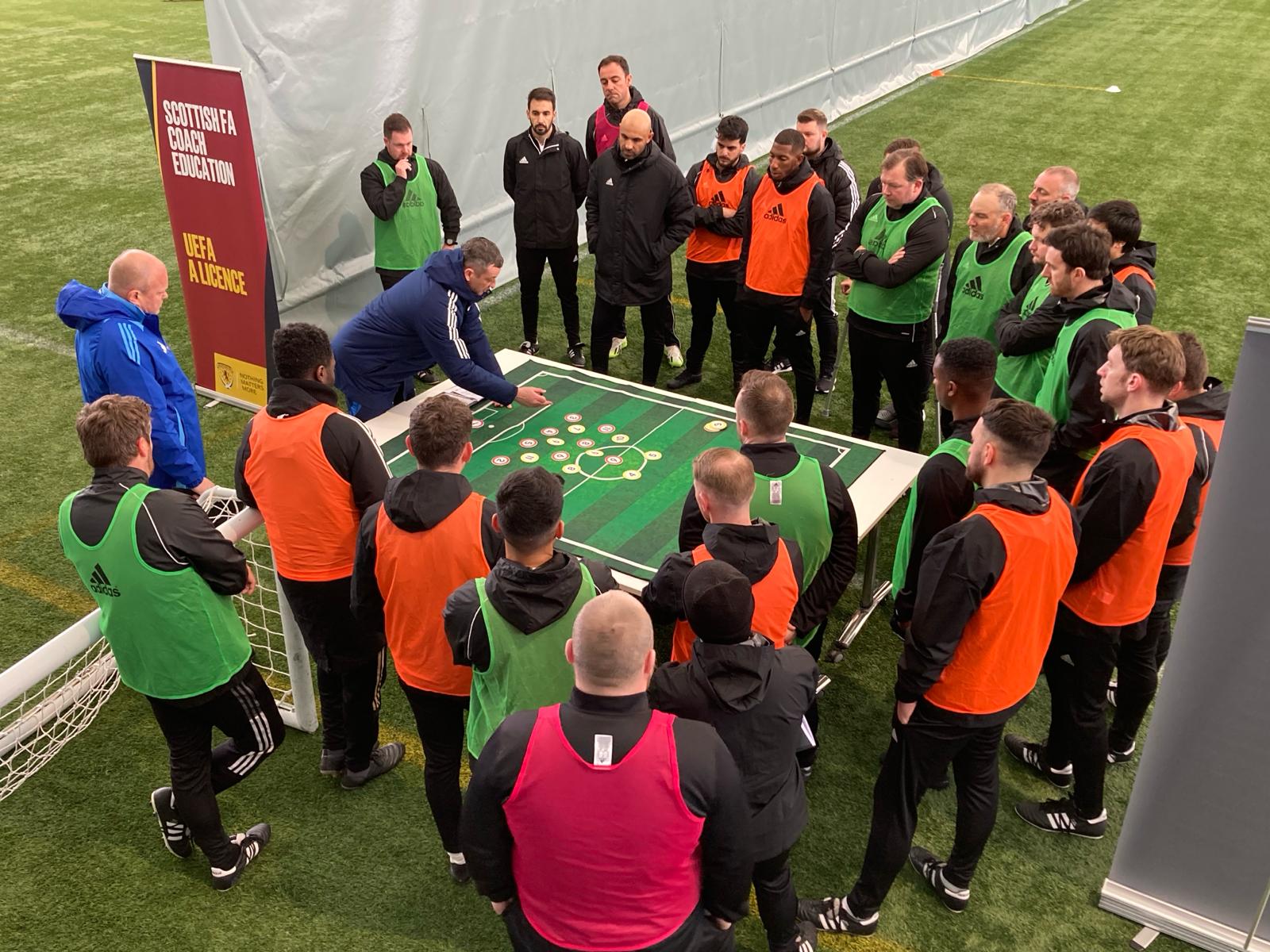
[ Do you think this difficulty getting into coaching courses - and jobs in Portugal has made Portuguese coaches more adventurous than coaches from other countries? Seems like there are Portuguese coaches everywhere. ]
I think for Portuguese people, adventure is part of our story, our history, it’s in our DNA.
Now, I think one thing that helped was José Mourinho, he raised the reputation of Portuguese coaches a lot and that resulted in great opportunities.
And I think we have one thing that is different to coaches from other countries - our ability to adapt. For example, training here in Portugal, we have a lot of difficulties - in my time as a youth coach 20 years ago, I only had two balls and we trained on tough ground (concrete). I need to find ways to give us things, if I don’t have a cone, I put some vests or something in its place - I found a way to get this result.
I’ve seen some coaches from other nationalities arrive at a club without much equipment or this and that and cannot do training. Portuguese coaches, all the time, will find a way. So, I think this adaptation is a strong thing for Portuguese coaches.
"in my time as a youth coach 20 years ago, I only had two balls and we trained on tough ground (concrete). I need to find ways to give us things ... I found a way to get this result"
[ How are you thinking about your next steps? What kind of opportunities are exciting or attractive to you at this stage in your career? ]
I'm open to going abroad again. I think that with my age, with my experience in different contexts, I'm prepared to jump to a higher level and I’m looking forward to this opportunity.
In August, I had an opportunity to take a national team in Asia, but again, the question of the Pro License blocked me, so we couldn’t move on. But I know what I can do, I know what I can build.
My next step is to do the UEFA Pro in Scotland in 2026 and continue my way as a coach. I'm also open to analyse any projects with clubs that want grow and develop.
I hope to one day arrive in the Champions League, that is my goal.
